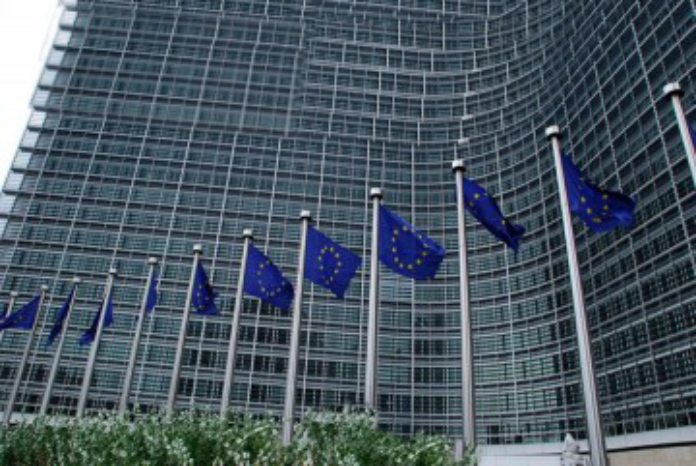Simon Boyd, director at REIDsteel and Business for Britain South West chairman, said: “While we remain in the EU our elected Government is helpless to assist the British steel industry. EU restrictions on our trade policy have cost the British steel industry thousands of jobs, leaving entire communities devastated.
“If we vote leave we can take back control of our trade policy and provide the help our steel industry needs.”
THE FACTS
-
The UK has no control over trade policy: it cannot apply anti-dumping measures against Chinese steel: only the European Commission can do this.
-
The EU has been slow to respond to a problem it first identified in 2008.
-
EU state aid laws severely limit what the UK Government can do to help the steel industry. Elected British politicians, not unelected EU bureaucrats and judges should be in control of how we support strategic industries.
The UK has no control over anti-dumping measures while we remain in the EU.
-
The EU has exclusive control over trade policy.
-
This means that the UK cannot avail itself of the right under the World Trade Organization’s rules to apply anti-dumping measures against imports. This power is vested in the European Commission instead.
EU policies have forced up the price of energy, which has had a devastating impact on the steel industry
-
EU energy regulation will cost the UK economy between £86.6bn and £93.2bn. This has a particularly corrosive impact on energy intensive industries, like steel.
-
The European Commission has admitted: ‘Energy costs [are] to rise in all scenarios’. There is no evidence that the ‘single market’ will reduce prices.
-
End-user gas prices are now nearly twice as high in the UK than in the US.
-
Between 2005 and 2011, ‘EU manufacturing saw the highest increase in energy costs‘ relative to the US, China and Japan.
-
According to the former European Commission President Jose Barroso, between 2005 and 2012 the gas price for European industry increased by 35 per cent and the electricity price increased by 38 per cent. In the US, by contrast, gas prices fell by 66 per cent and electricity prices fell by 4 per cent.
The EU has been slow to respond to the influx of cheap Chinese steel.
-
On 12 February 2016, the EU launched an investigation into the import of Chinese steel.
-
The EU has been investigating the dumping of cheap Chinese steel since 2008.
-
Previous EU measures have been ineffective at stemming the influx of cheap Chinese steel.
EU state aid laws have undermined the UK Government’s ability to aid our steel industry.
-
The Government has acknowledged that its scope to intervene in the Tata Steel crisis is limited by EU state aid rules. The business minister Anna Soubry, has said ‘We have to be very careful because we have to be compliant with state aid rules’.
-
In January, the European Commission ordered Belgium to recover €211m in aid handed to steelmaker Duferco for violating State Aid rules. It also opened a formal probe into claims that Italy had broken state aid rules by providing €2bn to help its Ilva steelworkers.
-
EU state aid rules have already caused problems for UK steel. In order to help the steel industry, the Government decided on 28 October that energy intensive industries ‘will be exempt from the policy costs of the Renewable Obligation and Feed-in Tariffs, to ensure that they have long-term certainty and remain competitive’. As a result of EU state aid rules, however, the Government was prohibited from implementing its policy until approval was given by the European Commission.
-
The Commission notified the Government of its approval on 17 December 2015.
-
There was therefore a 50 day lag between Government applying for approval and European Commission giving it. This cost the steel industry £6.2 million and UK industry as a whole £41.1 million.
-
The Business Secretary Sajid Javid has admitted that time has been spent ‘assessing whether more can be done to support energy intensive industries, within existing state aid rules’. He also acknowledged that there was little more that the Government could do under current EU laws:
‘We have undertaken a review of how other EU Member states support their energy intensive industries within existing rules. This work concluded that the UK is currently making full use of the scope to provide state aid compliant support to industry through the suite of measures in the Energy Intensive Industry compensation package’.






Why did the UK government and UKIP MEPs consistently vote against EU anti-dumping measures since 2008?